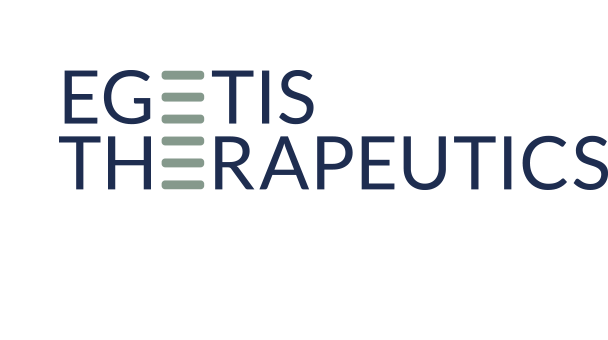Unmet medical need
Egetis develops novel therapies for life-threatening diseases
MCT8 Deficiency
MCT8 is an important transporter protein for the correct trafficking of thyroid hormone. Thyroid hormone was long believed to be able to enter into cells without the need for specific transporters, and it was only in 2000 that MCT8 was described as the first thyroid hormone specific transporter. Since then, several additional transporters have been described, with various distribution across tissues and organs. Importantly, certain key cells in the central nervous system, including the cells forming the blood-brain barrier, are solely dependent on MCT8 for transport of thyroid hormone. Consequently, without a functioning MCT8 protein, circulating thyroid hormone will not be able to pass into the central nervous system.
MCT8 is encoded by the SLC16A2 gene, located on the X-chromosome. Loss of function mutations in this gene is the underlying cause behind MCT8 deficiency. Since females have two X-chromosomes, a mutation in the gene on one of the chromosomes will be compensated by a functioning gene on the other. Consequently, even if there have been a few reports of symptomatic female carriers, the condition will typically affect only males.
MCT8 deficiency was one of the first syndromes of X-linked mental retardation described. Already in 1944 Allan, Herndon and Dudley described a couple of families with severe mental retardation and characteristic symptoms among its male members, which came to be known as the Allan-Herndon-Dudley Syndrome. However, it was only in 2004, following discovery of the MCT8 transporter, that the link was made to the underlying genetic deficiency.
Without a functioning MCT8 transporter, thyroid hormone will not be able to pass across the blood-brain-barrier and into the cells of the central nervous system, resulting in symptoms of thyroid underactivity. It is well known that thyroid hormone is critical for the normal development of the human brain. Without adequate thyroid hormone signalling, important neurodevelopmental processes such as myelination, which is known to take place only after birth, will be disrupted. In paradox, since the central sensors of the HPT axis will not detect adequate levels of thyroid hormone, it will signal to the thyroid gland to increase production and release more hormone. This will result in too much circulating thyroid hormone in the blood, causing symptoms of thyroid overactivity outside of the central nervous system. Consequently, MCT8 deficiency will lead to a unique combination of a central hypothyroidism combined with a peripheral hyperthyroidism.
Patients with MCT8 deficiency will appear normal at birth, with normal length, weight and head circumference. Symptoms will start to appear during the first months of life, with marked psychomotor development delay, hypotonia, tachycardia and progressive wasting. Over time, the neurocognitive impairment becomes dominant with severe intellectual disability and most patients will never develop the ability to sit independently and will not reach autonomy.
Paracetamol poisoning
Paracetamol is the most widely used drug in the world for treating pain and is available as both a prescription drug and over the counter. Meanwhile, paracetamol poisoning is one of the most common forms of poisoning due to intentional or accidental drug overdoses. Intentional paracetamol overdose is one of the most popular methods of attempted suicide among young people aged 10-19, where girls dominate.
Paracetamol poisoning is complicated by the fact that paracetamol is generally considered the gentlest of analgesic drugs and determining whether a paracetamol overdose is accidental may initially be difficult because the difference between a safe and toxic dose is minimal. The symptoms may also be fairly diffuse or non-existent during the first 24 hours after ingestion. Paracetamol overdose can lead to acute liver failure, which may result in the need for a liver transplant and, ultimately, death.
Paracetamol overdose is a major problem worldwide. In Sweden, the number of paracetamol poisoning-related questions received by the Poisons Information Center has increased threefold since 2000. In the UK, paracetamol overdoses account for 100,000 emergency department visits, 50,000 hospital admissions, and cause some 6,000 cases of acute liver failure and 150 deaths annually.

